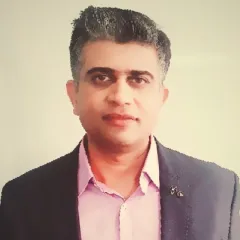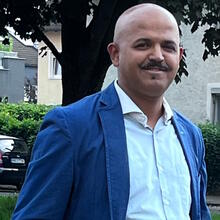
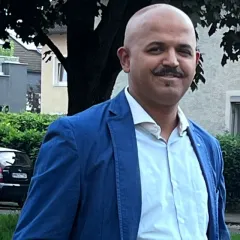
His core strength is in the development and process optimization and scaling up of Nano process, Lithium- Ion Battery manufacturing set up for 1Gwh plant.
Dr. -Ing. Yashodhan Pramod GOKHALE is a chemical engineering graduate with 15+ years of research experience, in both academic and professional groups of Electric Vehicles, Energy Storage, Emerging technology like Lithium ion batteries, Sodium ion Battery, Fuel Cell, Green Hydrogen, Aluminum ion, Solid state battery, Nanomaterials, Chemicals. He worked with German automobile players, chemical companies, OEMs for fabrication and selection of right LIB Battery packs for Electric vehicles, Solar, Telecom, Fuel cell Bus and Hydrid cars. His core strength is in the development and process optimization and scaling up of Nano process, Lithium- Ion Battery manufacturing set up for 1Gwh plant. His experience in energy storage includes Product life-cycle validation, Cost effective Lithium-ion battery deployment on solar and telecom projects. He has also been instrumental in bridging gaps between academia and the industrial world.
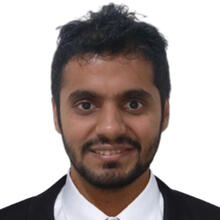
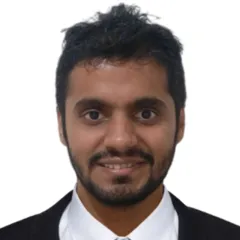
Pratik NAIK has over 12 years of experience in Automotive, Optimization, and Light weighting, specializing in Design & CAE, CAE Material Modeling & correlation, Design Calculations, DoE, and Project Management.
Sustainable Packaging: Beverage and Home Care Bottle Development by V-Pack (Virtual Simulation, Optimization for Blow Molding)
The Rigid packaging market is expected to witness significant growth. India rigid plastic packaging market stood at USD11.54 billion in 2021 and is anticipated to grow at a CAGR of 8.01% in the forecast period, 2023-2027*. High demand for rigid plastic packaging from the healthcare, pharmaceutical, and food & beverage industries is the major driving factor for India's rigid plastic packaging market.
There is a continual sustainability and economic drive for minimizing plastic content. The focus has shifted to designing lighter-weight versions of current packaging to downsize for more sustainable products.
RIL MEC V Pack studio's development methodology has been complemented by 3DS Similia’s simulation and modelling capabilities. V-Pack (Virtual packaging) is an effective tool to optimize both blow moulding process and part design to yield desired bottle performance at a minimized weight in an accelerated manner. It helps to validate concept designs early in the development cycle, reduce the number of physical prototyping and hence significantly reduce the product development time
The objective being to predict the design should meet all the desired CTQs. Unlike injection molding, blow molding inherently has challenges providing a controlled a uniform thickness distribution because every region stretched differently so the challenge for material/thickness distribution over the bottle design to achieve required performance with optimized weight and cost.
We were successfully able to simulate, predict and corelate with physical sample testing of Home care bottle design in EBM (Extrusion blow molding, HDPE) and Beverage bottle design in ISBM (Injection stretch blow molding, PET). Process simulation in this study guided part filling/forming behaviour and helped predict the material/thickness distribution in blow molding process. The final material distributions were mapped onto an FEA structural model, which was further able to replicate real-world usage/loading scenarios in manufacturing, consumer handling, distribution cycles (supply chain/logistics). The evaluations were aimed at the ultimate objective of delivering a product safe for final consumption.
Using RIL’s V-Pack Studio methodology and 3DS-Simulia products, the team was able to establish right-weighted sustainable rigid packaging products for the Beverage and Home Care bottles. The process and structural prediction helped optimize several parameters to establish optimized bottle wall thicknesses, weight, and shape aspects, whilst achieving a top load strength enhancement of 25-30%, prior to final tooling freeze.
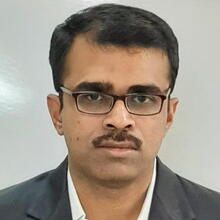
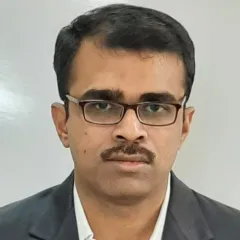
Overall 24 years of CAE experience in FEA & Fatigue Analysis of E-drives, E-axles, Chassis & suspension components, Light weight design of Aluminum intensive structures, Fatigue testing of structural components.
Sensitivity Analysis of Design Parameters of Park Lock System in E-drives Using Isight
The park lock system in E-drives need to comply FMVSS regulations. During design of park lock system, various design parameters such as actuator ramp angle,
actuator spring stiffness, pawl return spring stiffness, pawl design, park gear tooth width, actuator spring pre-load are varied to achieve desired
performance of the system. This process is manual and time consuming. In current paper, Isight is used to automate this process. In Isight, DOE feature is
used to evaluate effect of various design parameters and then sensitivity analysis was performed to find design parameters which has significant impact on
engagement speed. It has helped to reduce product development time significantly.
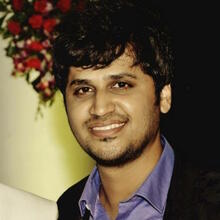
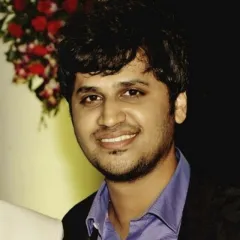
Karan DUDHANE currently working as Senior Manager at Tata Motors Limited, has 12 + years of experience in wide domains of CAE Structural Durability of Full Vehicle and Chassis along with CAE NVH in Power Train and Driveline NVH. Besides he is experienced in New Product Development and Project Management. He completed his Bachelor's in mechanical Engineering from Vishwakarma Institute of Technology in 2011.He has Technical publications in SAE journals and also presented his work in various Technical conferences in the fields of Product Development, Assesment and Improvement.
Evaluation of Weld Health Using Verity for Automobile Components
Structures in fields of automobiles, aerospace, marine, defense, energy – appliances, etc… are generally combination of system of components well organized and connected (fastened). One such critical fastening methodology is welding technique, which is permanent fastening technique to keep them integrated. Assessing the health of these welds becomes crucial to determine life of all these structures.
In automobile industry, the components are fastening by various weld techniques keeping in view both structural integrity and structural reliability. Assessing life of such welds become important to determine the quality and warranty period of the vehicle. These welds can be assessed in numerous ways, and one of the most promising methodology is by Structural Stress method (SS). Verity is based out of the Structural Stress method, developed by Battelle Laboratories by Dr. P. Dong.
Structural Stress method utilizes the nodal forces at the joineries (roots and toes) to compute the structural stress (SS) of the components. Upon computing these SS’s, they are mapped over the SN curves database spanning from early 1950’s to till date. The SS method uses the nodal information, but is insensitive to the mesh quality and size. Using this advantage of mesh insensitivity, Verity is capable of assessing all types of welds (including spot welds) under all loading patterns.
Current work focusses on few automobile case studies, where welds were assessed through Verity. Critical welds locations were identified through this evaluations and design modifications were done for robustness. Similarly few fail-fail and pass-pass correlations are also presented and found the life predictions through Verity were much realistic (as in line with Lab test) when compared with other commercial fatigue tools.
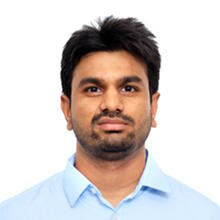
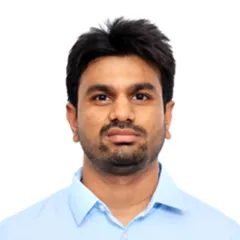
CAE analyst with 3 years of progressive experience in vehicle durability domain with a vision to provide innovative inputs for optimum product design using CAE tools and to drive the product development process.
Johnson-Cook model calibration for brittle materials under impact loads
In the assessment of parts subjected to impact loading, the current process relies on static analysis, which overlooks the significant influence of high strain rate on material hardening and damage. The omission of these effects hinders accurate impact simulations, limiting the analysis to comparative studies of two components and potentially misidentifying critical hot spot locations. To address these limitations, this study emphasizes the importance of incorporating the effects of high strain rate in impact simulations. By utilizing the Johnson-Cook material calibration model, which includes both material hardening and damage models, a more comprehensive understanding of material behavior under dynamic loading conditions can be achieved. The Johnson-Cook material hardening model accounts for the strain rate sensitivity of the material, providing an accurate representation of its behavior under high strain rate conditions. This allows for improved prediction of material response, particularly in terms of plastic deformation and flow stress. Additionally, the Johnson-Cook material damage model considers the progressive accumulation of damage and its influence on the material's failure behavior under impact loading.
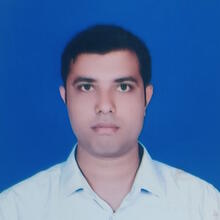
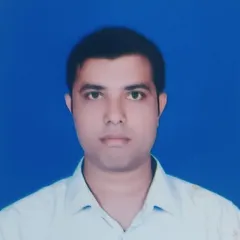
Over 10 years’ experience in CAE Durability domain. Highly motivated, decisive and result-oriented CAE Engineer working in the area of Structural Analysis.
Simulation, Correlation and Resolution of Bogie Suspension Rubber Bush Housing Failure Using Hyper-Elastic Material Model
In many cases, FE-based evaluation of rubber components is a challenging task since rubber has highly non-linear behavior and contact issues are associated with rubber movements, which make FE-based evaluation challenging. Therefore, specialized numerical methods and models are needed to accurately capture the behavior of rubber components in order to predict their response. To achieve reliable predictions, these specialized models must be accurately implemented in FE-based simulations, providing a reliable and valid evaluation of the rubber components. To ensure accurate predictions, it is paramount that these specialized models are implemented correctly within FE-based simulations, allowing for a reliable and valid evaluation of the rubber components. Furthermore, contact issues between the rubber and any other components must also be taken into account, which further complicates the FE-based evaluation.
In the Tipper vehicle Bogie suspension, it has been reported that the rubber bush bottom housing failed at an early stage in the field. This assembly involved Rubber bush mounted on Trunion shaft and Top and Bottom housing is connected through bolts. This failure is thoroughly investigated and FE analysis methodology is decided. We modelled the rubber bush in an uncompressed state and solved the assembly process as an interference problem using hyper-elastic material properties. As a result of the high rubber bush stiffness, the Top and Bottom saddle joints are opening. This opening resulted in the bottom saddle experiencing variable loads. The variable loads caused the bottom saddle to fail under high loads. To overcome this issue, multiple iterations involving modifications in bottom saddle design, changing friction in the assembly process etc. This work illustrates the capability of Abaqus to solve complex problems involving material and contact non-linearities which resulted in early resolution of the field failure issue. The use of Abaqus in this process allowed for a simulation of the design, which was a crucial step in understanding the behavior of the system and resolving the field failure issue.
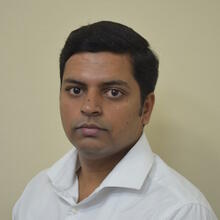
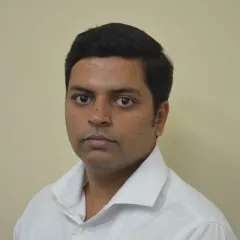
Experience of 5 years and 7 months in Finite Element Analysis of various components of IC Engine as well as offshore structures. Working knowledge of FE packages like Abaqus, Hypermesh, Ansys, FeSafe, Tosca, Isight, Simlab, etc. M. Tech. in Solid Mechanics & design from Mechanical Engineering Department of India Institute of Technology – Kanpur.
Simulation Techniques for Liquid Gasket Sealing Performance Prediction
In the automotive industry, silicon adhesive has become increasingly popular due to its benefits in ease of assembly and cost savings associated with material and manufacturing processes. Due to the demand to reduce time and costs in the development phase of the project, it is critical to choose the right gasket material, and a suitable flange design as early as possible in the design process. In order to achieve stringent emission standards such as Corporate Average Fuel Economy, a better sealing performance is an essential parameter. Various types of liquid gaskets such as silicon rubber based Room Temperature Vulcanizing sealants and thermoset plastic based anaerobic sealants are widely used in an Internal Combustion engine. They are commonly used for the components such as oil sump, bedplate, gearbox housings, etc. Traditional simulation methods could not capture the exact failure mode of the liquid sealant. Hence there is a need for a better understanding of the factors controlling a joint's sealing performance under realistic service conditions. This paper describes a methodology to predict the sealing performance of liquid sealants at a very detailed level. An innovative 2 Dimensional and 3 Dimensional simulation approach is used for micro level modelling of the joint. In the first phase of the simulation, a 2 dimensional simulation approach is employed for predicting micro level joint behaviours under various initial conditions. In the second phase, a 3 Dimensional approach is applied to find the behavior at the global level of the joining surface. Final sealing performance is evaluated by combining the 2 Dimensional and 3 Dimensional simulation results. Experimental validation for the most commonly used liquid gasket was carried out to establish the correlation of this process. It has been found that the predicted sealing results are well correlated with the experimental findings.
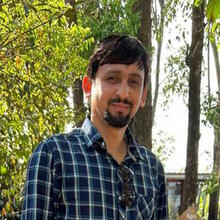
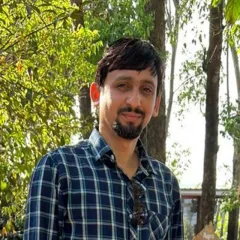
Mayur JAJU, Senior Manager, CAE Durability at TATA Motors Ltd, holds Master Degree in Mechanical Engineering from SGGS Nanded and has over 12 + years of experience in the field of virtual simulation, especially in passenger vehicle, tractors, buses. Have domain expertise in the Automotive structures (BIW, Trims, suspension) & optimization.
Fatigue Life Prediction of Fibre Reinforced Plastics Using Multiscale Modelling Approach
Use of composites requires detailed understanding of the composite behavior and new design approach. Composites design and development requires a dedicated approach in order to take into account the complex material behavior. Randomly oriented fibres in composites exhibit anisotropic, heterogeneous and Complex nonlinear material properties. Material response of composite is sensitive to local fiber orientations, nonlinearity, as well as strain rate dependencies, which relies on the manufacturing process of the part.
In fatigue tool, Based on few macroscopic S-N curves, it enables to predict the S-N characteristics for any orientation state of the fibers. So the combination with local fiber orientations yields a fully coupled approach to predict the fatigue life. Such analyses takes into account the local material performance based on the microstructure information and thus represents actual distribution of material properties as found in reality.
This study aims to bridge the gap in order to predict more realistic life of component by using multiscale approach. The fiber orientation output of mold flow simulation is mapped in the structural analysis using mapping tool. This process involves generating discrete material data card by combining basic nonlinear material data and fiber orientation data from each element. A study on Bumper carrier assembly is carried out using Abaqus, material test data is used to develop the advanced material model in CAE simulation. Correlation with fatigue test results will be shown.
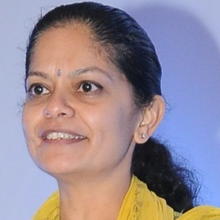
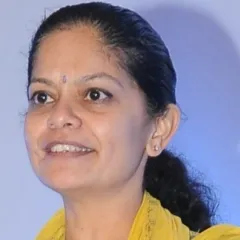
Renuka SRINIVASAN is currently SIMULIA Sales Director for India. In her current role, she is responsible for the SIMULIA business in India. Prior to this, she was WW Services Director for SIMULIA. Renuka has over twenty years of experience in the simulation business and was instrumental in setting up the SIMULIA business in India.
She was worked with customers across a variety of industries including automotive, aerospace and defense, industrial equipment manufacturers, civil engineering, engineering services providers, among others. She was a Bachelors in Civil Engineering from BITS, Pilani, and a Masters from Duke University.
SIMULIA Technology Update and Highlights
SIMULIA is a Simulation brand within Dassault Systèmes, the 3DEXPERIENCE company. We provide technology for simulation in each domain – covering Structures, Fluids, Electromagnetics, Multibody, Vibro-acoustics, and Automation & Optimization. This presentation offers a brief overview of these technologies and illustrates that you are using the same technology (per domain) whether you are a standalone product user or are a 3DEXPERIENCE platform user. We then highlight multidisciplinary and multiscale solutions of select industry processes and workflows. We also introduce a new unified licensing model that provides access to all solvers from the same license pool. The new model includes a cost-effective approach to encourage simulation-based design exploration. The presentation concludes with a peek into the remainder of the RUM agenda, including deep-dive sessions in each domain.
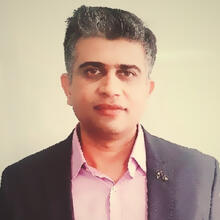
Shripad TOKEKAR has been working with Dassault Systemes for close to 13 years. Over the decade-plus career in Dassault, Shripad has been working with various customers across industries to deploy industry best processes for simulation. He started a career as an applications engineer providing technical support, training, and services and further closely worked with Automotive Industry to develop best practices, workflows & methodologies.
In his current role as an Industry Process consultant manager, he is leading a team of experts from various domains such as Structures, fluids, EMAG, MBS & Optimization. Shripad has a keen interest in understanding the Industry processes and deploys the best practices.
He has a Master’s Degree (MTech) from IIT Delhi in Applied Mechanics with a specialization in structural mechanics.
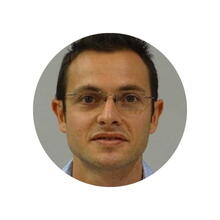
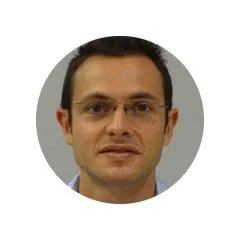
Raffaele SCUDERI received his master degree (summa cum laude) in Telecommunication Engineering from the University of Pisa, Italy, in 2010. After he graduated, he joined the Microwave and Radiation Laboratory of the University of Pisa as Ph.D. student. During this period, his research activity was focused on the numerical solution of Maxwell equations with special attention to the development of equivalent radiation models for EMC problems. In 2011, he has been visiting student at the department of Electrical Engineering of the Pennsylvania State University. In 2012 he joined IDS –Ingegneria Dei Sistemi as System Analyst and then as Application Engineer. His job was focused on simulation and measurements of the electromagnetic phenomena for complex platforms (radiation and scattering), in the radio frequency and infrared spectrum. In 2018 he joined Dassault Systèmes and his current role is Electromagnetics Industry Process Consultant. He works in the field of the electromagnetic simulation as SIMULIA EMAG specialist, contributing into the pre/post-sales activities, consulting services and R&D. Raffaele actively contributes to the scientific community publishing articles and holding lectures and seminars on electromagnetic simulation.
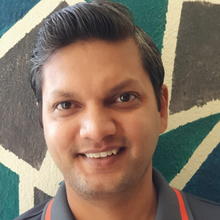
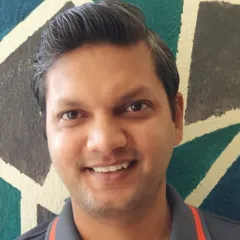
Prakash PAGADALA is an Industry Process Consultant with the Customer Process Experience team at Dassault Systemes India Pvt Ltd. His domains of expertise include Process Automation and Customization, Fatigue Simulation, Advanced Dynamic Analysis, Automotive Engine, and Powertrain Durability. He works with clients across various industries including Life Science, Transportation, and Mobility, Tire, and Industrial Equipment segments. Prior to joining DS, he was working with Altair Engineering India Pvt Ltd for six years. Prakash completed B.Tech. Mechanical Engineering from Kakatiya University and holds a Masters in Mechanical Design.
Brake System Engineering
The Brake system is a critical part of vehicle architecture. A good brake system design will ensure reliability, durability, efficiency, performance, and safety where and however the vehicle is operated. When the design is inadequate, the vehicle operator may be inconvenient to the occupants and in the worse case, no longer safe. The Brake System Engineering Industry Process from Dassault Systemes provides designers and engineers with realistic design & simulation solutions that, when used to drive the engineering process, ensures a perfectly designed brake system that meets the customer’s expectation for safety and a comfortable ride experience
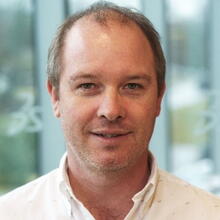

Chris is the Senior Director of the SIMULIA R&D Structural Simulation department at Dassault Systèmes, which includes the responsibility for R&D activities related to strategy, product management and product development for structural simulation applications and solver technology.
Chris has over 20 years of simulation-related experience in computational fluids and computational solid mechanics and has held a wide range of technical and leadership positions in Product Development, Strategy and Product Management since joining Dassault Systèmes in the late 90s (HKS, Inc. at the time). After several years as a development engineer focused on core solver development, Chris expanded his activities to include structural modeling and results processing and led the development of our portfolio of Abaqus-based solutions on the Dassault Systèmes 3DEXPERIENCE Platform. Since 2016, Chris has led the overall Structures Simulation SIMULIA R&D organization responsible for development of structural simulation solutions and technology.
He has Masters of Science and Doctoral degrees in Applied Mechanics and Mechanical Engineering.
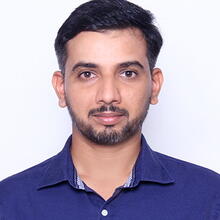
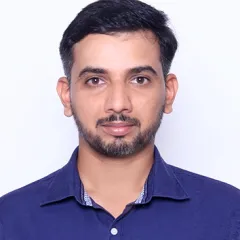
Amit is an Industry Process Consultant at SIMULIA India. He holds a Master’s degree in Thermal Engineering from IIT Madras and he has industry experience of 6 years in the field of CFD simulation of the under-hood domain and the HVAC domain. As an Industry Process Consultant at Dassault Systèmes, Amit works with automotive OEMs providing solutions related to aerodynamics. Prior to the current role, he worked as a fluid simulation expert with Caterpillar and Johnson Controls. He has a special interest in working on multi-phase and multi-species simulations.
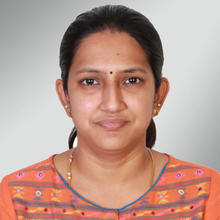
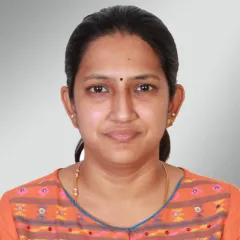
Jofeetha is a member of the Center for Simulation Excellence (CSE), working as a Technical Specialist for Dassault Systèmes, India. She has close to five years of experience in the simulation domain in the fields of solid and structural mechanics. She has a master’s degree in Structural Engineering from IIT, Kharagpur, and a Bachelor’s degree from PSG College of Technology. In her current role, she regularly interacts with customers providing them support on SIMULIA products. In addition to this, she is also involved in conducting trainings and executing benchmarks. Her focus areas are Geomechanics, Process Automation and Nonlinear Structural Analysis.
Structures Update
This presentation will focus on recent Abaqus enhancements related to contact, materials, analysis procedures, and high-performance computing (HPC). New capabilities for modeling and results visualization will also be discussed.
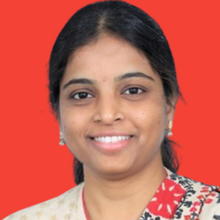
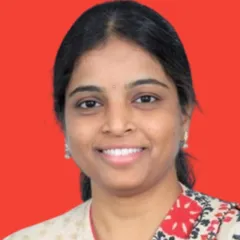
Geetha AVULA started her career with Dassault Systemes in 2004 and has been with the company since then. She started as an Applications Engineer and is now the Senior Technical Manager. As a support engineer, she has provided technical training and support for SIMULIA products primarily Abaqus. She has interacted with many customers giving them guidelines on the issues they are facing, suggestions on their workflows, etc.
In her current role, she’s responsible for driving initiatives such as Electric Vehicles, Additive Manufacturing, Cloud solutions, to be able to guide companies on the technology Dassault Systems has to offer. Interacting with many Electric Vehicles companies in India and working with the global team she is supporting quite a few clients in the EV space.
She holds a Masters's Degree in Computational Mechanics of Materials and Structures from the University of Stuttgart, Germany.

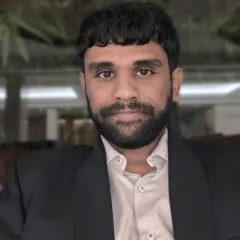
Arnab GANGULY has a Masters degree in Automotive Engineering. He is associated with DASSAULT SYSTÈMES, SIMULIA India as an Industry Process Consultant Manager for the last 6 years where he has managed technical-sales and support initiatives for structural simulation solutions for Pan-India customers. He has an expertise in Linear and Non-linear stress, fatigue and optimization simulations in the Automotive, Industrial Equipment, Energy & Material and Aerospace & Defense industries with special focus on Composites, Fracture Mechanics, ICEs, EVs and Fuel Cells.
